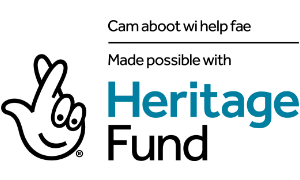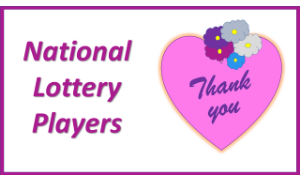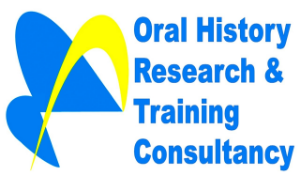Trauma


At times of immense stress, it is common for people to become combative or run away from the situation; other people might ‘shut down’ - become withdrawn and be unable to make decisions; some react differently. Until fairly recently, it was common to see references to a ‘fight or flight’ response when people were faced with a traumatic situation. However, we now know that the brain is hardwired to deliver a wider range of reactions, which are sometimes summed up as ‘fight, flight, freeze, fawn and flop’. All of these reactions are said to be a natural outcome of frightening situations or protracted periods of trauma and we share this instinctive behaviour with other animal life.
This refers to when someone actually moves closer to the source of their trauma and tries to placate or win over their aggressor and may manifest itself in the following ways:
The fawn response can mask the distress and damage being experienced. It is a common response to childhood abuse, and can also be the response that produces the greatest sense of confusion and guilt in someone with PTSD or C-PTSD.
Some experts add a fifth potential reaction: flop. This is when someone is totally overwhelmed and physically and mentally unresponsive by intensely stressful situations. This response is very similar to the ‘freeze’ trauma response, but may also include:
In people with PTSD or C-PTSD, these responses can leave a lasting legacy and become a recurrent behaviour. Symptoms like hypervigilance (constantly assessing potential threats around one’s self) and heightened arousal, or depressive episodes and hypoarousal (shutting down when faced with significant stress, adversity, or trauma), can mean that the person with PTSD or C-PTSD displays any of these responses frequently, sometimes within relatively unthreatening situations.
There was one time I was at…waiting on the bus…See Buchanan Street the old way…when it was old. There were just wooden seats in the system. So, I’d missed the bus home one night and I had my big cassette with me; a big cassette player. And then this boy came up and we got chatting away. And the next thing he’s lifting the cassette away from me. So I went along and then he was ready to pull a knife on me. I was quite…And then I tried to get the security, or whatever, at Buchanan Street. But they wouldn’t take anything to do with it, you know. A traumatic… Twelve o clock at night, you know. So, I was on my own, which was unfortunate. I was in the wrong place…wrong place at the wrong time. Or whatever they say. You know.
We stayed in Milton Court. I don’t know if you’ve heard of…It was at Christmas time. And I was coming in the close. Well, these two young…well, not young but maybe in their twenties, thirties…They asked me the time. And then I said-‘Oh, I’ve not got it with me.’ And then the next thing when I got into the close…I had a carry out with me…And then they got me at the bottom of the close. They pushed my face against the wall and said- ‘We’ve got a gun behind you.’ And they took the carry out off me, you know. And said- ‘Don’t look back until we’ve left.’ And that was a… You know, when I go… But sometimes when I can see them, I just say hello, or, just in passing, you know. But, other than that…” “It can (his eyesight affects him emotionally) because the likes of working…I was more or less always working until my eyesight went, you know. And sometimes that frustrates me as well, you know. Cause…And then you hear people saying-‘Oh, people on benefits and all this…’ Saying-‘Oh, you’re a scrounger.’ Or ‘You’re getting money for nothing.’ You know. But other than that, I try and spin it again to bring it round to a positive. At least I’m not drinking, I’m not on drugs and I don’t smoke so…That’s the positive side. I could easily go out and spend my money on, as I say, drink, or, drugs. But I wouldn’t do that because I’ve got a house to keep. And that’s what keeps the motivation going, you know.
- Ricky A
No, I don’t think they did (understand post-natal depression in the early ‘80s). And because when I first had Elizabeth…And I immediately, if you like, got my figure back and always wanted to look half decent. Nobody would have even dreamt of it. Nobody saw me crying and couldn’t get out the house. And ringing…Well, the neighbours got to know over the road because my mum asked them to help support her support me. But no, they didn’t because work as well…I’d still got an on-going case that needed to go to court and they were talking about they’d subpoena me if I…Because I said-‘Well, I’m just not going to be able to go. And they said-‘Well, you’ll be subpoenaed.’ And so, there was no understanding there. People from work used to come and sit…they were men but they were… You know, they would come and visit for a while. And one of them who had had mental health problems himself…He came to visit me in the hospital but I was so ashamed. I was ashamed and guilty and not the person I’d been. Not knowing whether I ever would be again. Well, in fact, you never are.
- Margaret Bradley
I think it made me very resilient as child, in a good way. I realised when I did my training qualification. My management qualification. I realised I had a really good ability as a trainer to suss out people in the room, in the group. And one that wasn’t…one that was a bit loud…I can put them together. She’ll bring out that person. That person needs to speak out. Right, put them with them. And I read once- as a child if you’ve been brought up in an environment where there’s trauma, there’s abuse, you know. That you very quickly pick up on atmospheres and pick up on energies. And pick up, oh no…Because I would pick up during the week if my Dad was starting to be stressed. And then I would be-Oh, no that means Friday night he’s on the bender. So, very quickly picking up people’s emotion. But also, being very resilient in terms of you’d had all that chaos over the weekend; trauma. But you still went into school on a Monday and put your smile on and met your pal at the bus stop. And my pals didn’t know anything. There was just certain days they couldn’t come round. So, in terms of resilience, oh completely.
- Jill Connell
Mostly it got me quite down and quite upset (bullying at school). I think for a while I found it difficult to cope with them (his feelings) but I think I ended up going to the doctors and, sort of, getting some help and stuff. And that’s really helped me to be able to manage a lot better.
- Ewan
Yes, it made me feel isolated (his mental health issues). And it dented my confidence to a greater extent than I thought possible. And then I was sort of house bound for almost eight or nine years. And then I went to the Cumbernauld College and got back into education. This time in computer networking which is something that I found very interesting. So, I was there for, again, four or five years. I did it part-time. Got my degree from Cumbernauld College and then went and did my Honours at UWS (University of the West of Scotland) in Hamilton. So, I got that. Managed to get a 2:1. I then took a year off and then went back to Glasgow University to do my PG Dip. It was supposed to be a Masters but PG Dip, I think, was good enough. In cyber security. So, I’ve got the education but, as with most things, it’s the experience that you require. Especially in the job market that I’m trying to get in to. So, I applied to Citrus Energy. And they…gratefully for me they took me on as a first line technical support analyst. So, for the last…Since mid-November last year I’ve been working there and hope to continue there for a while.
- David Glasgow
When I got diagnosed with bipolar and was told by the psychiatrist that I was not to go back to work. Because I was rapid cycling with the bipolarity. In fact, ultra-rapid cycling with the bipolarity. And his recommendation was that I was in too stressful a job (midwifery). And that I would never ever…because at times I was able to take periods of time off work and feel guilty about that. And he just said-‘This is not a job for someone with your level of trauma to be doing. You need to start looking after yourself now.’ I was fifty-two before I got diagnosed. So, I’d had it for thirty-six years before I finally got the diagnosis. And I got the diagnosis because I actually…I moved house and got a different psychiatrist. And having seen a psychiatrist twice who basically told me that I needed to get a grip and sort my life out. And that I was just reacting to my difficulties with the kids and my husband and all the rest of it. Got the new psychiatrist who actually admitted me under observation. And then got my three children to come in and be interviewed by him. And within twenty minutes of talking to them he knew instantly what was wrong with me. And that’s when I got my diagnosis of bipolar II.
- Kate
I think it was because of the lack of education about mental health. It was still a taboo subject (in the ‘50s, 60’s, ‘70s) You know it was-We don’t have that in our family. You know that didn’t come from our side of the family. And It was really sad. People could see… They could observe my father. He was very, very, withdrawn. He didn’t have much of a conversation for anybody that came into the house. And people would say-Oh, your Da was a very, very, quiet man. But I think it was just what he was going through. You know. Everything had been stripped away. He wasn’t treated very nice by my mum.
- Liz McVey
I should have been locked up. I was completely off my head with grief. But I didn’t. My husband could easily have got the doctor in and got me certified and locked up. Easily. Cause I was just crying all the time. Miserable. But he didn’t he just waited it out. So, no, I didn’t get… It was lucky. As he said he didn’t know what to do. He just kind of fed and watered me and waited for things to become different. So, no I didn’t end up in a mental health institute and I didn’t have a mental health nurse and I didn’t have any...I refused to accept the fact-people said-You’re depressed. I said-‘I’m not depressed I’m grieving.’ So, I made a distinction at that point that I am not physically depressed. I am grieving. I’m deeply grieving for my daughter. But I am not depressed. So, therefore I was not self- labelling myself as an illness. I was just saying I was going through a grief process. And I did have at the back of mind, there’s no doubt social work training tells you. Four years you go through the grief process. You go through the various stages. It’s a guideline. It’s not a tablet of stone. Sometimes they come at different times (the phases) Sometimes they don’t come at all. It’s useful as a guideline to see that there’s a theory. And it’s useful in terms of-there is a light at the end of the tunnel. That you can feel that there’s a winding down of a situation and a reflecting and taking stock of where I am now, where I was six months ago and where I was a year ago. So, yes. I hate to say it but the guy that helped me most was the garage mechanic (who had been through a similar trauma) and my husband.
- Mary Smith
There were one or two of my friends knew I had it, they knew it, but never confronted, as if to say, which was pretty good on their behalf, you know. I had a lot of friends, you know, back then, and they were pretty good. As I said, there was about three of them knew. And about three or four of them didn’t know until later life till I told them. They couldn’t believe it. They said-‘No way.’ And I said-Aye, I’ve had that for years.’ But, once again, I’m not as bad as…there are a lot of people out there worse than me. And as I say, the dyslexia was…Dyslexia kind of broke my heart a bit because I want to do things, you know, and it held me back. So I’m always…If I’m on here…If anybody does listen to this you need to seek help early. Not late in life. Really early in life, you know. As early as you can. Especially if you’re at school. It just kind of broke me a wee bit, you know. So…cause there were certain jobs that I couldn’t go for. Certain things I couldn’t do because of it. And it was just a stigma, you know. And that was it. But I was just a happy go lucky kind of guy and just got on with it.
- Stewart Tait
My first marriage I was a …I was just a boxing ring, you know. So, I left that when I was expecting Louise. Because he was ready…He was ready to hit me one night. And I decided- I need to go he’s going to injure the wee one. So, I packed my bags. I must tell you this story because this is…It’s not hilarious but I laugh. So, I packed my bags and I had Peter, and I had…I was expecting. So, poor Peter, it was Christmas time and he kept saying, shouting-‘I want to take the tree. I want to take the tree.’ And I explained to him-‘I’m going to get a new tree. It’s alright. Don’t worry. We’ll get a new tree.’ But we went on the bus and I looked and I thought-‘I’ve not got a penny. How am I going to get to my Mum’s? I can’t understand. What am I going to do.’ So, I said-well the only thing. I had a black eye by the way and a burst lip. So, I thought-I’ll just need to talk to the driver. And it wasn’t on his route the street that I wanted to go…my…Pembroke Street…Anyway, I said to the driver- ‘As you can see, I’m in a bit of a predicament here.’ I said-‘I need to get to my mum’s but I’ve no money.’ And he said-‘Oh, hen. Just get on.’ And then when we were getting to…I said-‘I want to go to Pembroke Street if it’s ok? And he said…He stopped the bus and he said to all the people on the bus-‘Do you mind if I take this wee lassie to Pembroke Street?’ And every one of them went-‘No, I think you better get her home to her mammy.’ And that’s a true story. So, that’s true Glaswegians for you. So, I was taken up to my Mum’s with a bus driver. And obviously it was great when I thought about what the driver did.
- Agnes McEwan
My brother and I are still very…Very, very good friends, though, you know. But I was jealous at that culture that supported men in the family and women were…Were to be theirs. You know for…The value of women not being there and given equal opportunity was my biggest anger, bugbear and it was a driver to my achievement. I can still today… I say to myself that had my Mum not said all this to me; not punished me. I would never have had the energy to achieve it. Because I was just so angry at her. So, I had to prove myself that that is not fair. And it all turned out ok at the end.
- Indira Pole
Trauma…For me trauma is a negative experience. But I’ve only just learned what trauma is. Because I think when you don’t recognise yourself going through trauma sometimes…. It’s only when you reflect back on it. I think that has massive implications when you look back at childhood trauma. That you don’t maybe realise maybe you’ve had childhood trauma till you’re an adult. So, I always find the word trauma more about…It’s a negative experience you’ve had in your life that’s had an impact on how you move on and how you move forward and stuff like that. And how your personality’s defined sometimes. That’s where I see where trauma is. But I just think it’s a generic word that probably doesn’t…and can be used in so many different places and conversations. That it gets kind of…not to say overused but it’s…It’s hard to define. Is it a trauma of experience? As opposed to a physical trauma, a mental trauma…So, I just find the actual…the word for me trauma, I just always associate it with an actual…just a negative experience. That’s what I would say my understanding of it is.
- Robert Smith
I’ve experienced numerous traumatic experiences in my life; there’s quite a few. And I think that’s part of life and the human condition and some of them are more extreme than others. Yeah, I think, perhaps separation within the family, and at a very early age, maybe had a bit of an impact on my development as I grew older and as a teenager. And, that I think didn’t define who I am but it helped me probably cope better as an adult. I don’t really know. I mean, I think I’ve experienced lots of things that have made me feel unhappy and sad. And, but, I’ve learned a lot from them perhaps. And that’s probably why I do what I do professionally. Cause I’ve got empathy and stuff. So, yeah.
- Rachel Toner
But there was one wee woman in that kind of vicinity (Woodilee Hospital ward) that had been put in there by her husband. I read her case notes. And, because he said she lay in bed all day and didn’t look after the children. And you’re thinking-She’s obviously got some kind of depression. And he made a list of all the things she didn’t do. And it was just so stark and you just think-you’ve got no empathy or anything. You horrible person you. And that was enough way, way back for a doctor to say-‘Right, she’ll need to go into hospital.’ She never came out again. And her daughter used to come and visit her. She’d be in her nineties, early nineties. And her daughter was in her seventies, god love her. She’d spent all her life without her mum but she had quite a big family as well. She’d have had post- natal depression probably. Or she’d been going through the menopause.
- Claire Taylor



